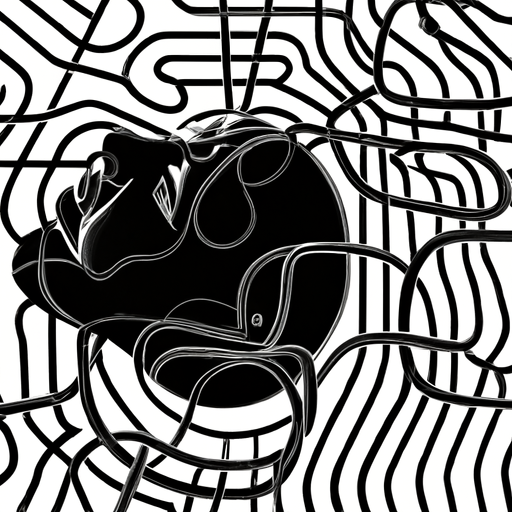Neurogenic syncope, a condition characterized by sudden loss of consciousness, is a complex and often misunderstood medical phenomenon. It can have a significant impact on an individual’s quality of life and pose challenges for diagnosis and treatment. In this article, we will delve into the various aspects of neurogenic syncope, including its causes, symptoms, and diagnosis. We will also explore the available treatment options, ranging from medications to lifestyle changes and therapies. Additionally, we will provide insights into living with neurogenic syncope, including coping strategies, support networks, and preventive measures. By gaining a comprehensive understanding of this condition, individuals and their loved ones can better navigate the challenges it presents and improve their overall well-being.
1. Understanding Neurogenic Syncope: Causes, Symptoms, and Diagnosis
Neurogenic syncope, also known as reflex syncope, is a condition that causes temporary loss of consciousness due to a sudden drop in blood pressure. It occurs as a result of an abnormal autonomic nervous system response to certain triggers. This section will delve into the causes, symptoms, and diagnosis of neurogenic syncope, shedding light on this often misunderstood condition.
Understanding the causes of neurogenic syncope is crucial in its diagnosis and treatment. The condition typically arises from an overactive response of the autonomic nervous system, which controls involuntary bodily functions such as blood pressure regulation. Certain triggers, such as prolonged standing, emotional stress, pain, or even sight of blood, can induce a reflex response that causes the blood vessels to dilate and the heart rate to slow down. This sudden decrease in blood pressure hinders the brain’s blood supply, resulting in loss of consciousness.
The symptoms of neurogenic syncope vary but commonly include dizziness, lightheadedness, blurred vision, nausea, and brief loss of consciousness. People experiencing neurogenic syncope might notice warning signs like feeling warm, sweaty, or having a sensation of impending faintness. These prodromal symptoms are crucial to identify as they can provide valuable insight into the underlying cause.
Diagnosing neurogenic syncope often requires a comprehensive evaluation by a medical professional. The healthcare provider will begin by taking a detailed medical history, paying particular attention to episodes of syncope and any potential triggers. A physical examination may follow, including blood pressure measurement in different positions. Additional diagnostic tests, such as an electrocardiogram (ECG), may be conducted to rule out any underlying heart abnormalities. Other tests like a tilt table test, where the patient is tilted at various angles to provoke syncope, or an electrophysiology study, may be performed to assess the autonomic nervous system’s function.
Being aware of the causes, symptoms, and diagnostic procedures associated with neurogenic syncope is essential for effective management. Treatment options typically focus on preventing syncope episodes and managing triggers. Lifestyle modifications, such as avoiding prolonged standing, staying hydrated, and practicing stress management techniques, can play a significant role in managing
2. Exploring Treatment Options for Neurogenic Syncope: Medications, Lifestyle Changes, and Therapies
Neurogenic syncope, also known as reflex syncope, is a condition characterized by a temporary loss of consciousness caused by a sudden drop in blood pressure and heart rate. While the exact cause of neurogenic syncope is not fully understood, it is believed to be triggered by an overreaction of the autonomic nervous system.
When it comes to treating neurogenic syncope, a multi-faceted approach is often necessary. The goal of treatment is to reduce the frequency and severity of syncope episodes, as well as to improve the patient’s overall quality of life. Treatment options for neurogenic syncope can vary depending on the underlying cause and severity of the condition. Here are some commonly used treatment options:
1. Medications: Several medications can be prescribed to manage neurogenic syncope. These medications aim to regulate the autonomic nervous system, stabilize blood pressure, and prevent sudden drops in heart rate. Beta-blockers, for example, are commonly prescribed to slow down the heart rate and reduce the risk of syncope episodes. Other medications, such as fludrocortisone, can help increase blood volume and maintain blood pressure.
2. Lifestyle Changes: Making certain lifestyle modifications can also play a crucial role in managing neurogenic syncope. Patients are often advised to increase their fluid and salt intake to help maintain blood volume. Avoiding triggers that may lead to syncope, such as standing for prolonged periods or exposure to extreme heat, is also important. Regular exercise, although it may seem counterintuitive, can actually improve cardiovascular function and reduce the frequency of syncope episodes.
3. Therapies: In some cases, additional therapies may be recommended to manage neurogenic syncope. One such therapy is physical counterpressure maneuvers, which involve specific movements or techniques to increase blood flow to the brain during an episode. These maneuvers include crossing the legs, tensing the leg muscles, or squatting. Another therapy option is the use of compression stockings or abdominal binders to prevent blood pooling in the legs and improve circulation.
It is worth noting that the effectiveness of treatment options can vary from person to person. Therefore, a personalized treatment plan should be developed in consultation with
3. Living with Neurogenic Syncope: Coping Strategies, Support Networks, and Preventive Measures
Living with neurogenic syncope can be challenging, as it often involves dealing with sudden and unpredictable episodes of fainting or near-fainting. However, there are coping strategies, support networks, and preventive measures that can greatly help individuals manage their condition and improve their quality of life.
One of the most important coping strategies for individuals with neurogenic syncope is to learn to recognize the warning signs and triggers of an episode. This can include symptoms such as dizziness, lightheadedness, or a sudden drop in blood pressure. By being aware of these signs, individuals can take preventive measures to reduce the risk of fainting, such as sitting or lying down in a safe place, avoiding triggers like hot environments or prolonged standing, or performing counter-pressure maneuvers like crossing the legs and squeezing the buttocks.
Having a strong support network is also crucial for those living with neurogenic syncope. This can include family, friends, or support groups who understand the challenges and can provide emotional support. Sharing experiences, discussing coping strategies, and exchanging advice can be helpful in managing the condition. It is also important to educate loved ones about the condition so that they can provide assistance during episodes and understand the importance of taking preventive measures.
In addition to coping strategies and support networks, preventive measures play a significant role in managing neurogenic syncope. These measures can vary depending on the underlying cause of the condition and should be discussed with a healthcare professional. Some common preventive measures may include avoiding triggers such as dehydration, excessive heat, or prolonged standing, maintaining a healthy lifestyle with regular exercise and a balanced diet, and taking prescribed medications as directed.
For some individuals, medical interventions may be necessary to manage neurogenic syncope. This can include the use of medications to regulate blood pressure or heart rate, the implantation of a pacemaker or cardioverter-defibrillator, or even surgical procedures to address any underlying issues that may be causing the syncope.
It is important for individuals with neurogenic syncope to work closely with their healthcare team to develop a personalized management plan. This plan should address both acute episodes and long-term prevention strategies. Regular follow-up appointments with healthcare professionals are essential to monitor the condition


